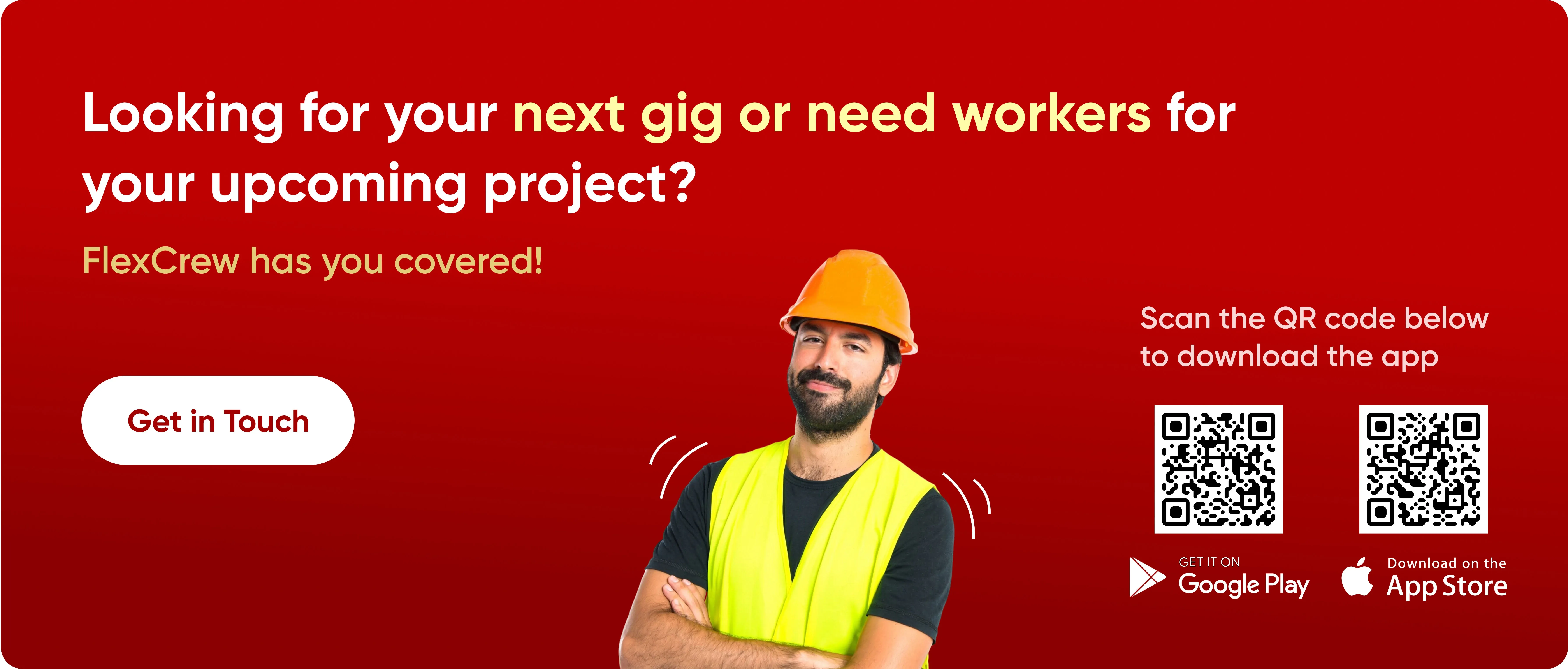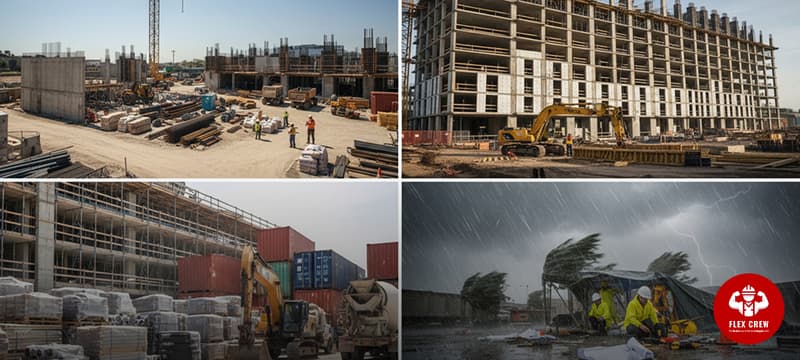Let's be real – construction payroll feels like trying to solve a Rubik's cube blindfolded. With workers across multiple sites, varying pay rates, union requirements, and compliance nightmares lurking around every corner, you're probably wondering if there's a better way.
Bottom Line: Smart construction companies are ditching manual payroll systems for automated solutions that handle multi-state compliance, prevailing wages, and certified payroll reporting without the stress. It's time to stop spending weekends calculating overtime and start focusing on what actually makes you money.
Here's what we're dealing with in 2025: Construction payroll isn't just about cutting checks anymore. You've got federal regulations changing faster than you can track them, 33% of small businesses getting hit with payroll fines annually, and workers who expect perfect accuracy every single time.
Sound overwhelming? Yeah, we get it. But here's the good news – while your competitors are still drowning in spreadsheets and manual calculations, you can be running payroll like a pro with the right approach.

Why Construction Payroll Is Different (And Why It Matters)
Look, if you've ever tried to use regular payroll software for construction, you know it's like bringing a butter knife to a gunfight. Construction payroll has its own special brand of complexity that makes other industries look like child's play.
Multiple job sites, multiple headaches. Your workers might start the day in Texas and end it in Louisiana, each with different tax rates, overtime rules, and compliance requirements. Try explaining that to QuickBooks.
Union vs. non-union chaos. One project might have union workers with specific rates and fringe benefits, while another has non-union crews with completely different pay structures. Mess this up and you'll hear about it fast.
Prevailing wage nightmares. Government contracts come with Davis-Bacon Act requirements that change your entire payroll game. Weekly certified payroll reports, specific wage rates by location, and one mistake can cost you future contracts.
The 1099 vs. W-2 minefield. Misclassify a worker and the Department of Labor might come knocking. They recovered $3.3 billion in back wages for misclassified workers between 2016 and 2021. That's billion with a "B."
The Real Cost of Getting Payroll Wrong
We're not trying to scare you, but the numbers don't lie. Payroll mistakes in construction can destroy your business faster than a bad safety incident.
Financial penalties hit hard. The IRS doesn't mess around – penalties range from 2% to 15% of your total payroll. For a company running $2 million in annual payroll, that's up to $300,000 in fines. Ouch.
Legal nightmares multiply. Employment-related lawsuits have increased 400% in the last 20 years, with many stemming from payroll issues. Class-action wage and hour lawsuits can put you out of business permanently.
Employee trust evaporates. A recent survey found that 65% of employees would look for a new job after just two payroll mistakes. In today's tight labor market, you can't afford to lose good people over preventable errors.
Project delays cost serious money. When payroll problems cause work stoppages or slow hiring, your project timelines suffer. Delays mean penalties, lost profits, and damaged relationships with clients.
Eight Construction Payroll Solutions That Actually Work
Enough doom and gloom – let's talk solutions that real construction companies are using to win at payroll.
1. Ditch the Spreadsheets for Good
If you're still using Excel for payroll, you're living dangerously. Manual processes are error magnets, and in construction, errors equal expensive problems.
Modern construction payroll software handles all the complexity automatically. It calculates prevailing wages, tracks union requirements, manages multi-state taxes, and generates certified payroll reports with the click of a button.
The game-changers include:
Automatic tax calculations for all 50 states
Built-in prevailing wage databases that update automatically
One-click certified payroll report generation
Real-time compliance monitoring and alerts
2. Master Time Tracking Before It Masters You
Accurate payroll starts with accurate time tracking. If your workers are still writing hours on scraps of paper or texting them in, you're asking for trouble.
Digital time tracking with GPS capabilities solves multiple problems at once. Workers clock in and out from their phones, the system captures their location automatically, and you get real-time data on who's working where.
Smart time tracking features:
Mobile apps that work anywhere with cell service
GPS location tracking for job site verification
Automatic break and overtime calculations
Integration with payroll systems to eliminate double entry
3. Automate Compliance Instead of Stressing About It
Staying compliant with construction payroll regulations shouldn't require a law degree. The best payroll systems handle compliance automatically, updating rates and rules as they change.
Key compliance areas to automate:
Davis-Bacon Act prevailing wage requirements
State and local minimum wage laws
Union collective bargaining agreements
Workers' compensation classifications
Multi-state tax obligations
4. Get Serious About Worker Classification
Misclassifying employees as independent contractors is one of the costliest mistakes in construction payroll. The rules are complex and constantly evolving, but the penalties are severe.
Use the Department of Labor's guidance to properly classify workers based on:
Level of control you have over their work
Whether they use their own tools and equipment
How integral their work is to your business
Their opportunity for profit and loss
Pro tip: When in doubt, classify as an employee. It's safer and cheaper than dealing with a misclassification lawsuit later.
5. Handle Multi-State Projects Like a Pro
Construction companies often work across state lines, which means dealing with multiple tax jurisdictions, wage laws, and reporting requirements. This complexity multiplies fast when you have crews moving between states regularly.
Choose payroll software that automatically handles multi-state compliance by:
Calculating taxes based on work location, not employee residence
Applying correct overtime rules for each jurisdiction
Managing different minimum wage requirements
Filing tax returns in all applicable states
6. Streamline Union Payroll and Reporting
Union payroll adds layers of complexity with collective bargaining agreements, fringe benefits, and specific reporting requirements. Manual tracking is nearly impossible to get right consistently.
Modern systems automate union payroll by:
Storing all union agreements and rates
Calculating fringe benefits automatically
Generating union reports with required detail
Tracking dues and benefit contributions

7. Master Certified Payroll for Government Projects
If you work on government contracts, certified payroll reporting isn't optional – it's the law. Weekly WH-347 forms must be accurate and submitted on time, or you risk losing future contract opportunities.
Automated certified payroll systems:
Generate WH-347 forms automatically
Verify prevailing wage compliance
Submit reports electronically when required
Maintain audit trails for compliance verification
8. Integrate Everything for Maximum Efficiency
The biggest productivity gains come from integration. When your time tracking, payroll, accounting, and project management systems talk to each other, data flows automatically without manual entry.
Integration benefits include:
Automatic job costing from payroll data
Real-time labor cost tracking by project
Seamless financial reporting
Reduced data entry errors
Why Construction Staffing Agencies Need Specialized Payroll
If you're running a construction staffing agency like FlexCrew USA, payroll complexity multiplies exponentially. You're not just managing one company's workers – you're handling multiple clients, each with their own requirements, rates, and compliance needs.
Staffing-specific challenges:
Managing workers for multiple client companies
Handling different pay rates for the same worker on different projects
Coordinating with client payroll systems
Managing workers' compensation across multiple clients
Maintaining compliance for both your company and your clients
The solution? Specialized software designed for construction staffing that handles these unique requirements automatically while maintaining the flexibility you need to serve diverse clients.
Red Flags That Your Payroll System Needs an Upgrade
Not sure if it's time to upgrade? Here are the warning signs that your current system isn't cutting it:
You're spending entire weekends on payroll. If payroll takes you more than a few hours per pay period, something's wrong. Modern systems should make payroll quick and painless.
Compliance keeps you up at night. If you're constantly worried about whether you've calculated prevailing wages correctly or filed the right reports, it's time for a system that handles compliance automatically.
Your workers complain about pay errors. Even small mistakes erode trust and can cost you good employees. Accuracy should be automatic, not aspirational.
You avoid certain types of projects. If you're turning down government work because the payroll requirements are too complex, you're leaving money on the table.
Your accountant dreads payroll time. If your financial team spends more time fixing payroll errors than analyzing business performance, you need better tools.
Construction Payroll Best Practices That Save Money
Beyond choosing the right software, these practices will keep your payroll running smoothly:
Set up approval workflows. Don't let anyone run payroll without proper review. Build approval steps into your process to catch errors before they become expensive problems.
Keep detailed records. The IRS requires you to keep payroll records for years, but good records also protect you in disputes and audits. Digital systems make this automatic.
Train your team properly. Even the best software won't help if your team doesn't know how to use it. Invest in proper training to maximize your investment.
Stay current with regulations. Laws change constantly. Make sure someone on your team is responsible for staying updated, or choose software that handles updates automatically.
Audit regularly. Don't wait for problems to find you. Regular internal audits can catch issues before they become major headaches.
The Future of Construction Payroll
The industry is evolving fast, and payroll technology is keeping pace. Here's what's coming:
AI-powered compliance monitoring will catch potential issues before they become problems, analyzing patterns to predict and prevent errors.
Real-time labor cost tracking will give you instant insight into project profitability, helping you make better decisions on the fly.
Predictive analytics will help you forecast labor costs more accurately, improving your bidding and project planning.
Mobile-first design will make payroll management possible from anywhere, giving you the flexibility modern construction demands.
Your Construction Payroll Questions, Answered
Q. What's the biggest construction payroll mistake companies make?
A. Trying to handle complex requirements with generic software. Construction payroll has unique challenges that require specialized solutions.
Q. How much should construction payroll software cost?
A. Good construction payroll software typically costs $5-15 per employee per month. Compare that to the cost of one payroll mistake – it's a bargain.
Q. Can small construction companies afford specialized payroll software?
A. You can't afford NOT to use it. The cost of mistakes far exceeds the cost of proper software, especially for small companies with tight margins.
Q. How long does it take to implement new payroll software?
A. Most modern systems can be set up in 1-2 weeks with proper planning. The key is choosing software designed specifically for construction.
Q. What about data security with cloud-based payroll?
A. Reputable payroll providers use bank-level security that's far better than most small companies can implement themselves. Cloud systems are generally more secure than in-house solutions.
Q. Do I need certified payroll if I don't work on government projects?
A. Only government projects require certified payroll, but many contractors find the detailed reporting helpful for all projects as it improves cost tracking.
Q. How do I handle workers who work in multiple states?
A. Modern payroll software handles multi-state workers automatically, calculating taxes and compliance requirements based on where work is performed.
Q. What's the difference between prevailing wage and minimum wage?
A. Minimum wage is the lowest legal wage for any work. Prevailing wage is higher rates required on government projects to ensure fair compensation.
Q. Can payroll software handle union and non-union workers together?
A. Yes, good construction payroll software manages both seamlessly, applying appropriate rates and benefits based on worker classification.
Q. What happens if I get my certified payroll wrong?
A. Mistakes can result in project delays, fines, and potentially being barred from future government contracts. The stakes are high enough to justify investing in proper systems.



